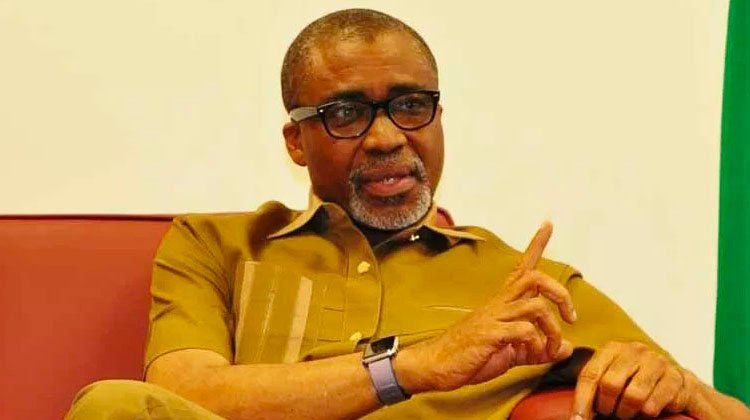The Minority Leader of the Nigerian Senate, Senator Enyinnaya Abaribe, has claimed that there are dozens of separatist groups in the South-East region of the country and not just IPOB.
He stated this on Channels Television’s Political Paradigm which was monitored by Africa Today News, New York where he lamented that the focus has always been on the Indigenous People of Biafra (IPOB) which was wrong.
‘One of the biggest problems the media has is that they tag everything IPOB,’ the lawmaker said on the programme which aired on Tuesday. ‘In the South-East, you won’t believe that there are more than 30 different separatist organisations – IPOB, the Movement for the Actualization of the Sovereign State of Biafra (MASSOB), there are so many and each one of them comes back to the same thing.
‘Why you are having separatist agitations everywhere today in the West, in the South, in the South-South, is that some people are unable to manage our diversity, that is just the fact.’
Abaribe made the remarks even as heightened calls for secession not just for the breakaway of parts of the South-East, but also for the Yoruba nation have continued to dominate proceedings.
He believes those calling for secession are merely protesting the marginalisation of their people and demanding that their grievances be addressed.
The lawmaker asked the government to dialogue with them to restore calm and peace in various parts of the country.
According to him, IPOB has clarified that its sit-at-home order is only effective when its leader goes to court and there has been some form of compliance with the directive.
‘It should worry the government if a non-state action is complied with in this manner, it takes us back to what I said at the beginning that there is need to sit and talk with these people,’ the senator said.
‘There is nobody from the South-East that I know, who does not feel that the way the people from the South-East are treated today, that there is something fundamentally wrong which should be resolved.’
AFRICA TODAY NEWS, NEW YORK
